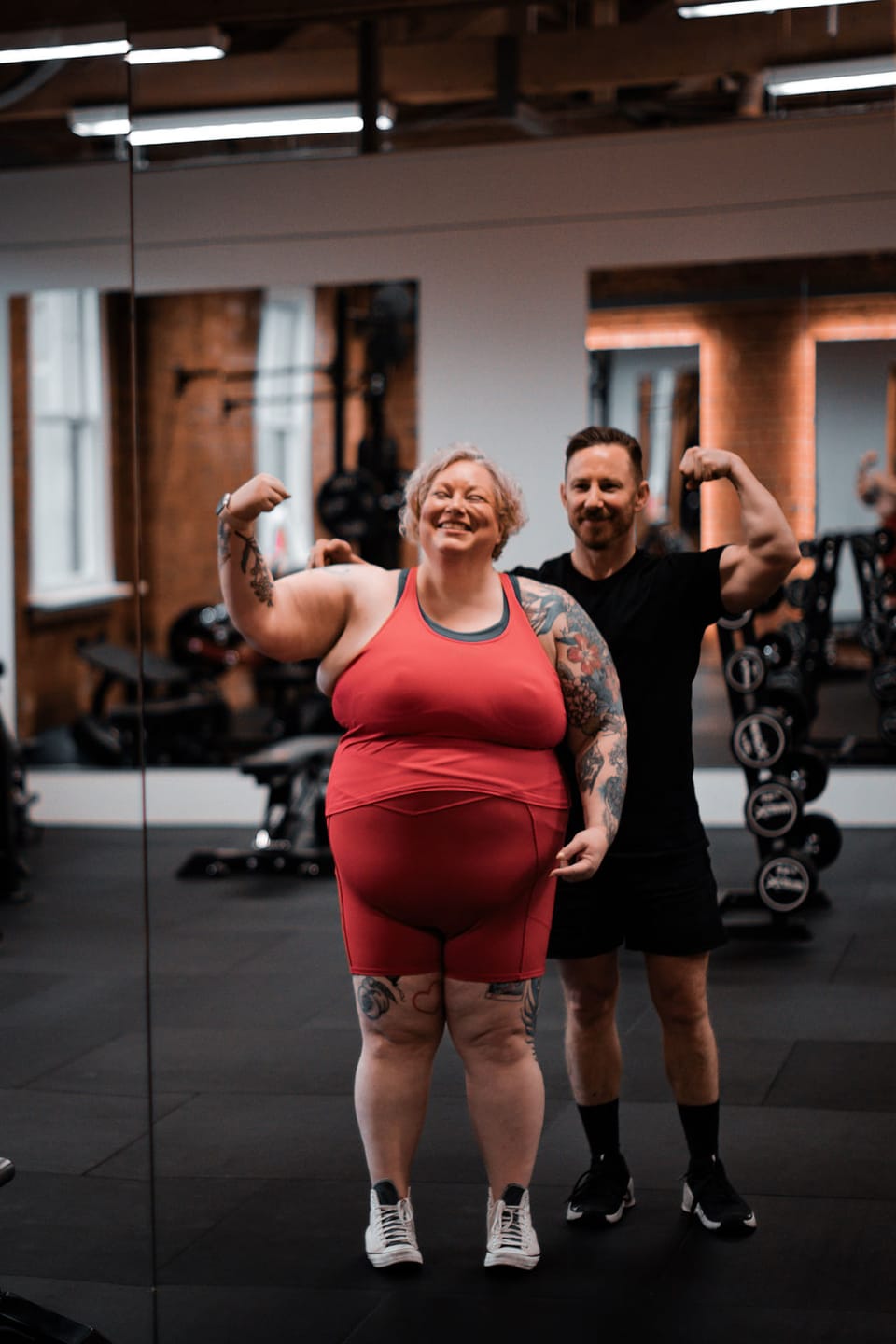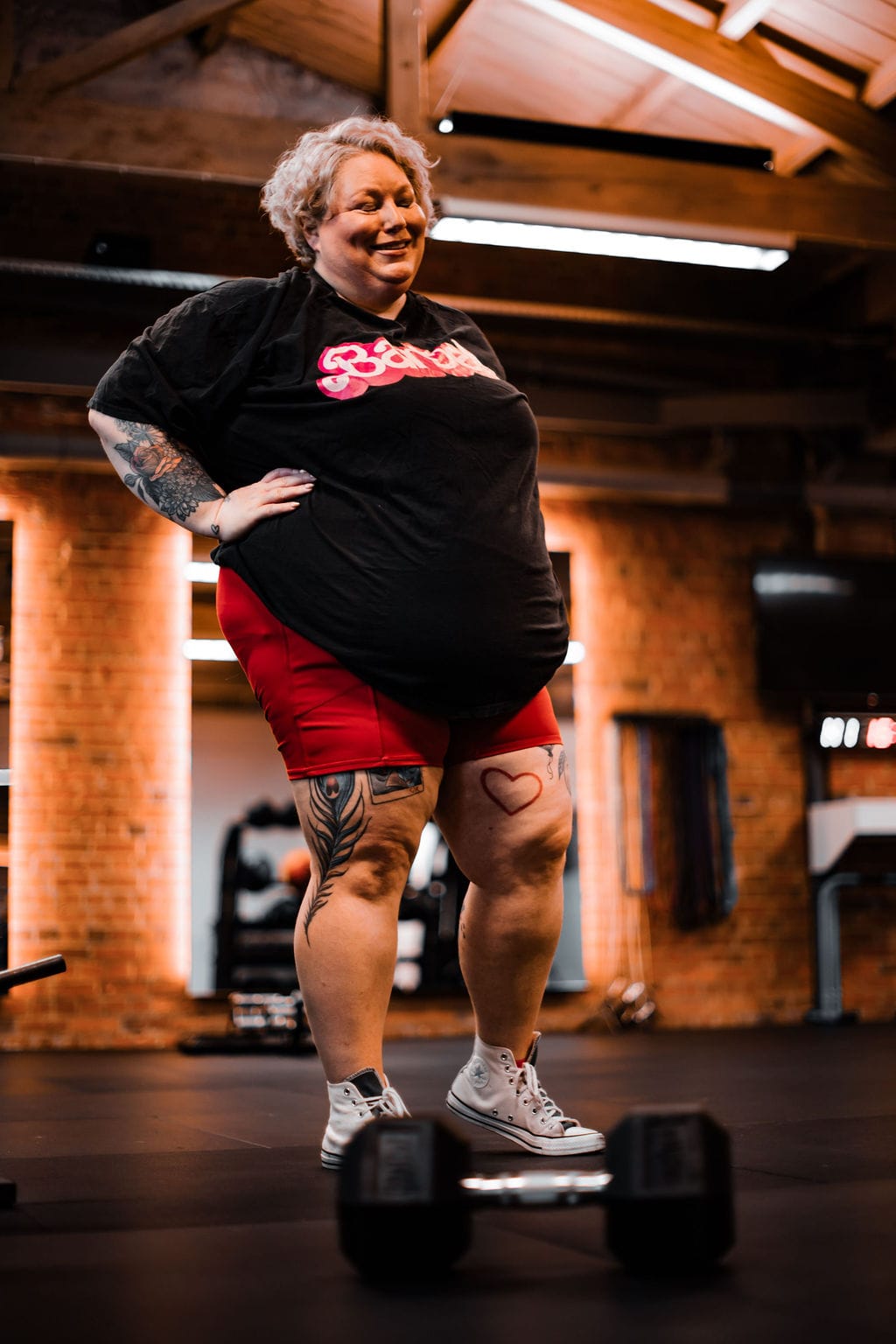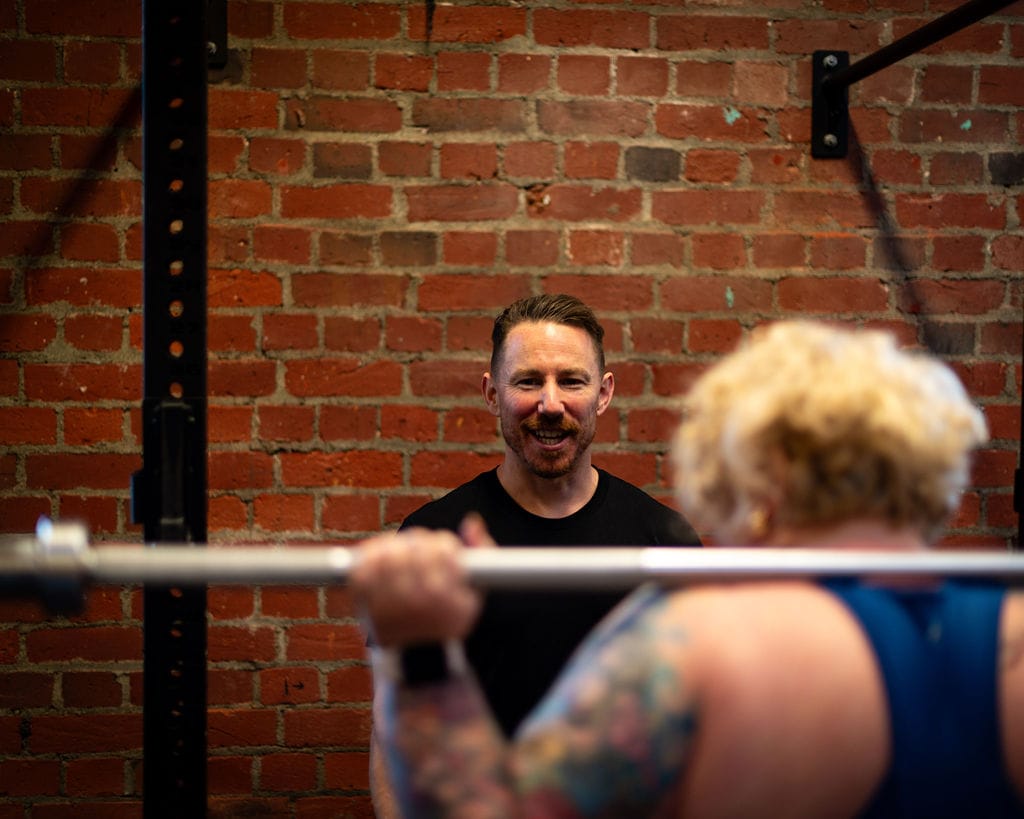The Good Word Strength Training

Megan: When I was eight, I ‘represented’ Canterbury at basketball. At 13, I made the 3rd form* A netball team. I think I did really well at shotput at one point at primary school, too.
And thus ended my illustrious sporting career. I kept playing netball and basketball and other sports well into my thirties. But I was never good at anything. I was uncoordinated, slow, heavy of foot and not particularly deft of hand.
And I was fat. I went from being a chubby teen to, as a man on the internet recently described me, a human potato**. And so, I let myself be convinced that my body wasn’t capable of great things. And then I stopped doing anything at all.
So imagine my surprise, at 44, to discover I am actually quite good at something. That my body has a propensity for growing muscle*** and that I am good at being strong.
Being strong is the single greatest gift I’ve ever felt. The most empowering thing I’ve ever done. It has fundamentally changed my life, and who I am as a person. It has helped me in the gym, but it has helped me so much more out of it. I know how capable I am because if I can lift 100kg off the floor, I can tell a colleague they’re being an asshole.
If you spend five minutes with me in person, I will inevitably try to convert you to the Good Word Strength Training. I will tell you all the benefits I know about. The blood pressure and longevity and bone density and cognitive benefits.
But if you’re a woman, I will tell you that this feeling - knowing I can lift my suitcase into the overhead bin easily, and I intend for that to be the case well into old age - has made up for decades of oppressive beauty standards and feeling like I didn’t (and could never) measure up.
At least a couple of my friends have decided “enough already Megan,” and joined me at the gym. I was working out with one friend recently, and as I watched her hip thrust, I thought “ah yes. You’re where I was five years ago. You are scared to go hard ‘cos you don’t know what your body is capable of.”
On the one hand, I might be being wildly condescending. I probably am. And not everyone is going to want to lift huge weights.
But I also wonder if, when you don’t look like a fitness influencer and it’s hard to buy leggings in your size, and the world assumes you’re not capable of much physically, it’s easier to believe those voices that tell you’re body isn’t worth looking after. And by 'wonder,' I mean 'know.'
Am I an evangelist? Yes. But I spent 30 years not feeling joy in my body, and then I discovered how it feels to really and truly care for my body. And I want more people to feel that. And I have the gym - and my trainers, including Carl - to thank for that.

Carl here. After decades of both experience and guiding my clients on their well-being journeys, some strong themes consistently emerge.
I could list the benefits of strength training such as improved hormonal balance, stronger bones, greater disease resistance, and increased longevity, but that would just be telling you what you probably already know. And all of which we will get to in future newsletters.
So what can you actually expect if you’re new to strength training?
If you train regularly (2–3 times per week) with a safe and tailored programme, you can expect strength gains to come on fairly quickly. Within 8–12 weeks of consistent training, a 40–60% increase in strength is common.
Over 3–6 months, some lifts may even more than double. It feels great and you’ll notice the difference in everyday life: whether it’s carrying bags of potting mix, playing with your kids, or breezing up a flight of stairs that used to leave you struggling.
These early gains are largely thanks to neural adaptations, where your nervous system becomes more efficient at activating muscle fibers. You’ll likely notice a stronger “mind-to-muscle” connection, meaning you can feel and control your muscles more deliberately (sometimes even pull off some impressive party tricks).

Visible muscle growth takes a little longer, but if you stay consistent and follow a well-designed programme, you should begin seeing subtle physical changes after a couple of months.
From there, progress naturally slows, but the journey becomes even more rewarding. Continued results depend on consistency, intelligent programming, and applying the principle of progressive overload (gradually increasing the challenge to keep your body adapting).
This is where things get exciting. With a solid foundation in strength and conditioning, your potential is huge, from achieving personal goals to high performance. This is why it's important to have a good coach, who can guide this process for you in a safe and smart way, all while helping you navigate the normal ups and downs of life and failures and niggles that are all part of this journey.
One of my favourite examples is a 90-year-old client who started training in his 70’s, and through regular strength training, was able to deadlift 90 kgs, complete unassisted pull-ups, and perform full push-ups for multiple sets.
It’s no coincidence that he lived independently and travelled internationally without physical limitations.
What I find most compelling, though, is the positive overlap strength training has with other areas of life. It’s incredibly empowering. It can awaken a sense of drive, grit, and confidence that spills over into how you carry yourself outside the gym. The gains go far beyond muscle, they reshape how you see your own potential.
* Yes, I am that old
** Please believe me when I tell you that men on the internet describing my body in unflattering terms in no way affects my mood beyond being sad they’re not more imaginative. They’ve never managed to be meaner to me than I am to myself.
*** When I also eat protein and don’t drink alcohol and take creatine and rest and recover. I am strong, not magical
Cool stuff we saw this week
Carl - Plyometric training benefits maximum strength primarily through improving the rate of force development (RFD) and recruiting fast-twitch muscle fibers. Therefore you may see it included in Megan's programming soon! - study here
Megan - "Experts say we’re finally waking up to what women’s bodies are capable of." Yes, good. (Washington Post gift link)
Megan - Speaking of cool ways to use your body. (Full disclosure, this comes from my day job.)
Megan - Carl and I are both in prep for something (more on this next week), so I am not drinking for the next six week. But for when I am back, Is There a Least Bad Alcohol? (NYT gift link)
Megan - Apparently the kids are doing kettlebell swings? (I enjoy that my tiktok algorithm knows not to send me these trends, cos it makes me angry.) (Guardian)
